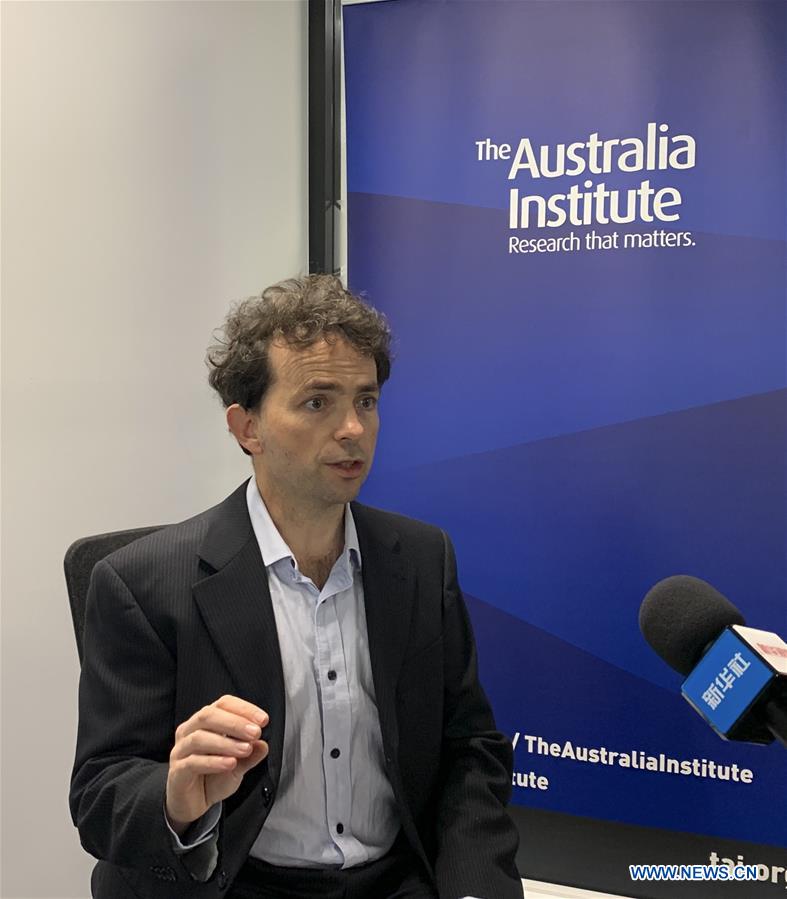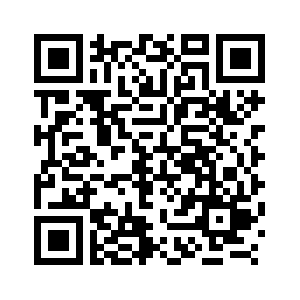
Rod Campbell, research director at the Australia Institute, a Canberra-based independent think tank, receives an interview with Xinhua in Canberra, Australia, June 10, 2020. (Xinhua/Yue Dongxing)
CANBERRA, June 10 (Xinhua) -- Coordinated efforts to spread disinformation and conspiracy theories about the coronavirus should be stopped, an Australian researcher told Xinhua on Wednesday.
A report entitled Like a Virus: The Coordinated Spread of Coronavirus Disinformation, completed by the Center for Responsible Technology of the Australia Institute and the Digital Media Research Center of the Queensland University of Technology, revealed that there are accounts on social media spreading rumors that the coronavirus is a bioweapon created by China.
"What surprised me most is the prevalence of overtly right-wing accounts," said Rod Campbell, research director at the Australia Institute, a Canberra-based independent think tank.
"This kind of coordinated disinformation is almost entirely a right-wing phenomenon," he added.
Their research has analyzed more than 25.5 million retweets of 2.6 million tweets over a 10-day period in March, finding that many of the accounts are likely to be automated or "bot" accounts, controlled by computers rather than humans.
The report identified 30 clusters of Twitter accounts coordinating with each other to propagate disinformation, the majority of which identify themselves as supporters of conservative politicians.
"It's not genuine behavior of human users," Campbell said, adding that within 10 days, the rumors gained as many as 5 million views.
Noting that these allegations have made it easier for some politicians to make up conspiracy theories to attack China, he said, "It can't be good for coordinated efforts to fight coronavirus. It can't be good for public health or diplomatic relations."
"There will always be crazy people coming up with crazy ideas," he said. "We can't and shouldn't stop ideas, but we should be trying to stop coordinated disinformation efforts."
Better regulation is needed for social media, he said. "We also need to look at digital literacy in the population, and be running programs and government campaigns to help people to be able to spot a ridiculous theory and learn how to ignore it, and how to have more civilized online discussions."
Meanwhile, Campbell noted that celebrities should be responsible for what they say and share on social media, since people in powerful positions or with very large followings are able to influence public debates.
"We've seen how celebrities are the super spreaders of disinformation. When conspiracy theories start, you get a celebrity with 10 million followers to comment and share, suddenly this obscure disinformation becomes mainstream very quickly," he said.
However, he also noted that some platforms are taking efforts in responding to disinformation. "A lot of social media companies are now ensuring that their algorithms promote fact-based sites, official sites and sites that are providing good science-based information, rather than helping spread conspiracy theories." Enditem



